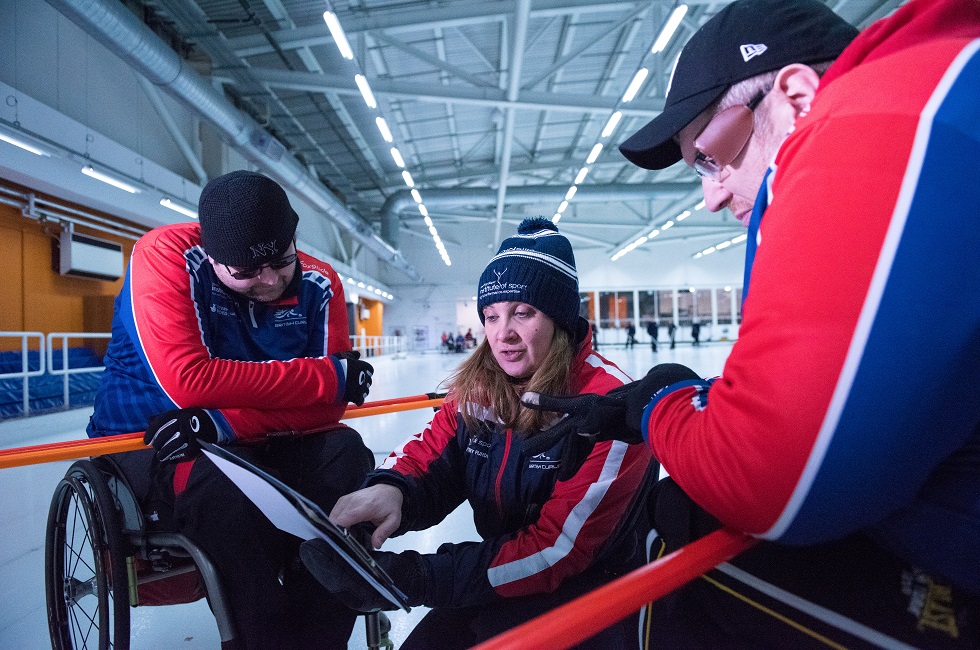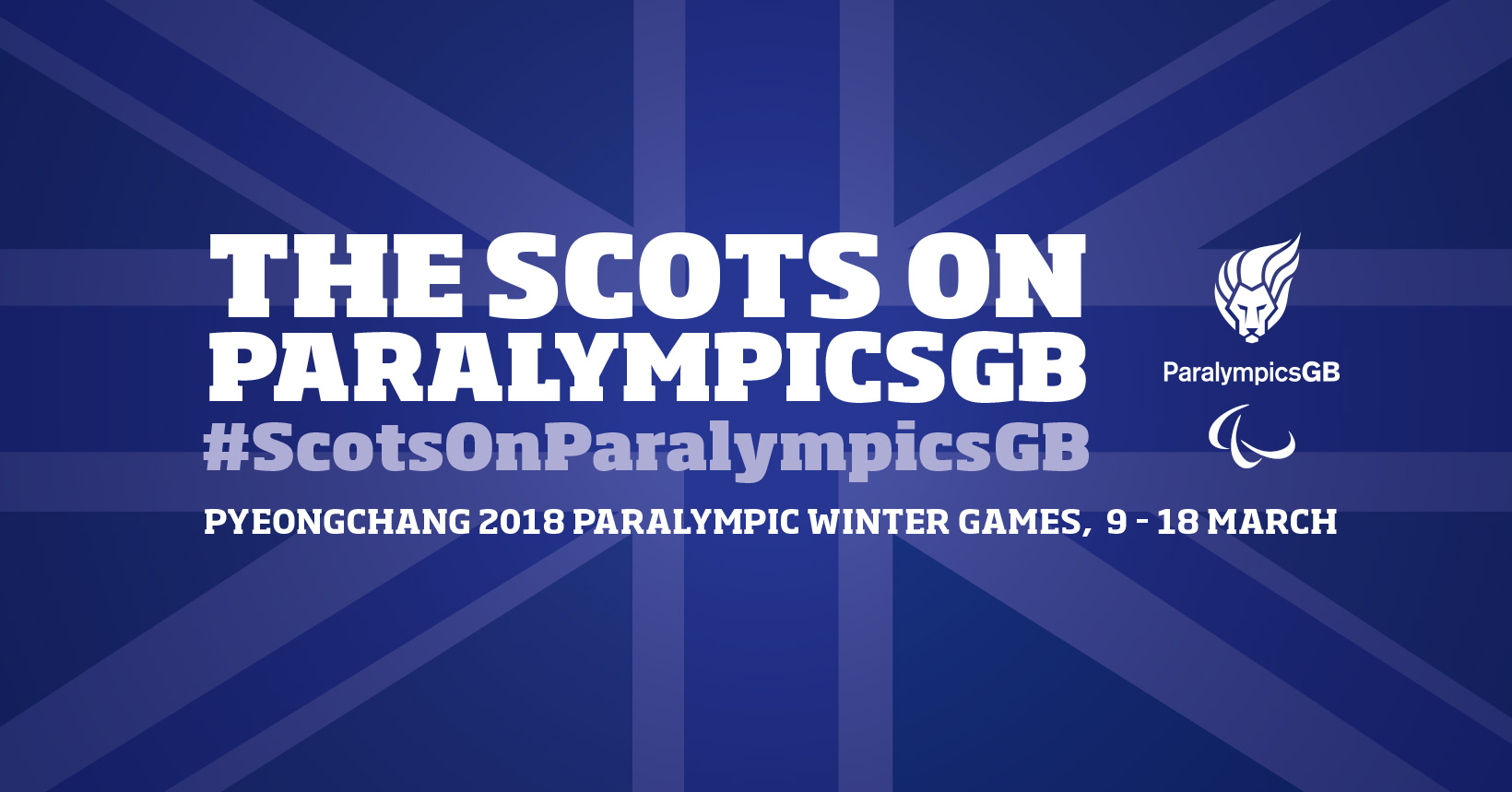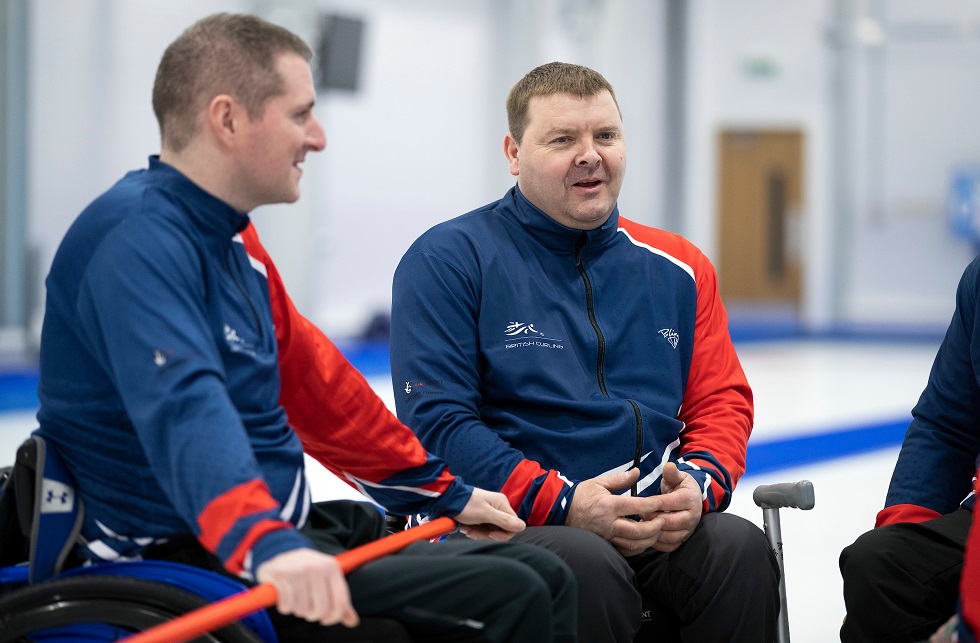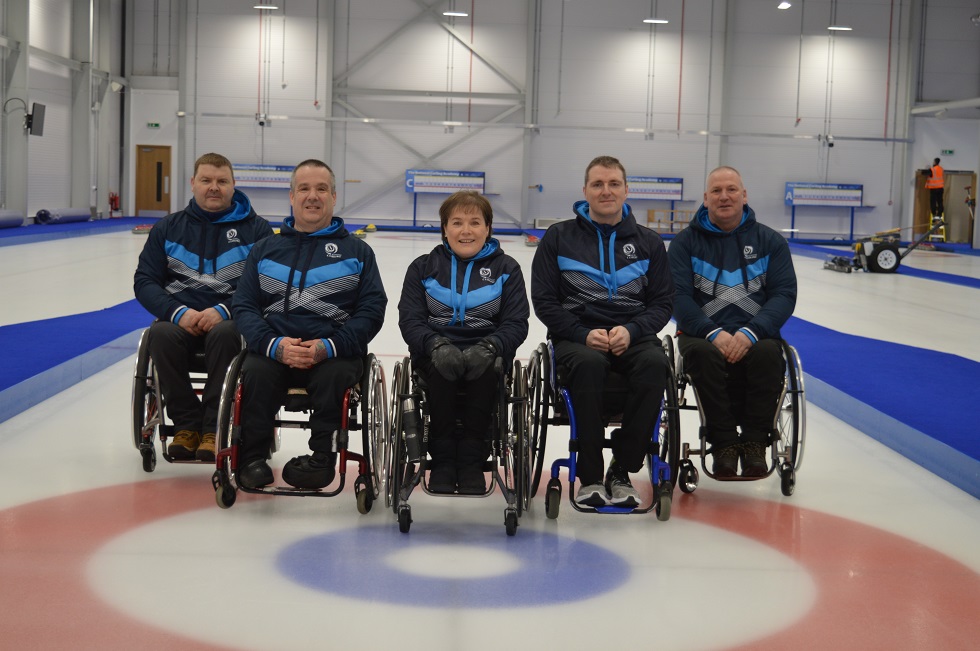Sheila Swan is head coach of the Great Britain wheelchair curling programme, based at the sportscotland institute of sport. In one year's time, all being well, she will be leading a team of Scots in pursuit of a medal at the 2018 Winter Paralympics in PyeongChang.
In the latest instalment of My Sporting Life, Sheila takes us on her long journey in performance sport: from athletic versatility at school to amazing achievements on the world stage and ultimately to where she is today, coaching at the World Wheelchair Curling Championships.
On early experiences of sport
I’m not sure what my first contact was but I was lucky enough to be exposed to lots of different sports and activities at a young age.
I grew up in a small village in Perthshire and was generally found outside on my bike or playing football in the local park. There were also tennis and badminton clubs run by local volunteers, tasters into various sports through the Primary School and I was introduced to golf by a family friend at a fairly young age.
My dad was, and still is, a keen club curler and it was through watching him that I got involved with curling – I started curling aged 11, which was as young as they allowed back then.
Now kids can get involved at an earlier age through Curling’s Cool and After School Clubs, which is fantastic.
The challenges of school sport
My primary school was small but did a pretty good job with limited indoor space for PE and sports. It had good outdoor space for playground games, football and netball, and you would generally find me on the football pitch with the boys during morning break and lunchtime.
I was the only girl who played football and there wasn’t the same pathway available so if rules disallowed me from playing for the football team, I played netball instead.
Given the small class size whenever there was a sports event or competition everyone tended to get involved, especially when the sport called for separate boys’ and girls’ teams, so I probably joined in with most sports.
At secondary school there were more facilities available and greater access to a range of sports. I enjoyed curriculum PE and included it in my Standard Grade and Higher subjects as well.
I played in a number of different sports including badminton, volleyball, basketball, hockey and curling so there was plenty of opportunity.
I was captain of the First XI, but it was sometimes difficult to balance with curling as both were played during the winter and I was often away at weekend curling competitions when there were hockey fixtures.
Pathway to performance
I’m not sure I ever thought I would be a high-performance athlete. There wasn’t the same pathway in place in the 90s and I’m not sure many people imagined that in the future there would be an opportunity to be full-time or funded athletes.
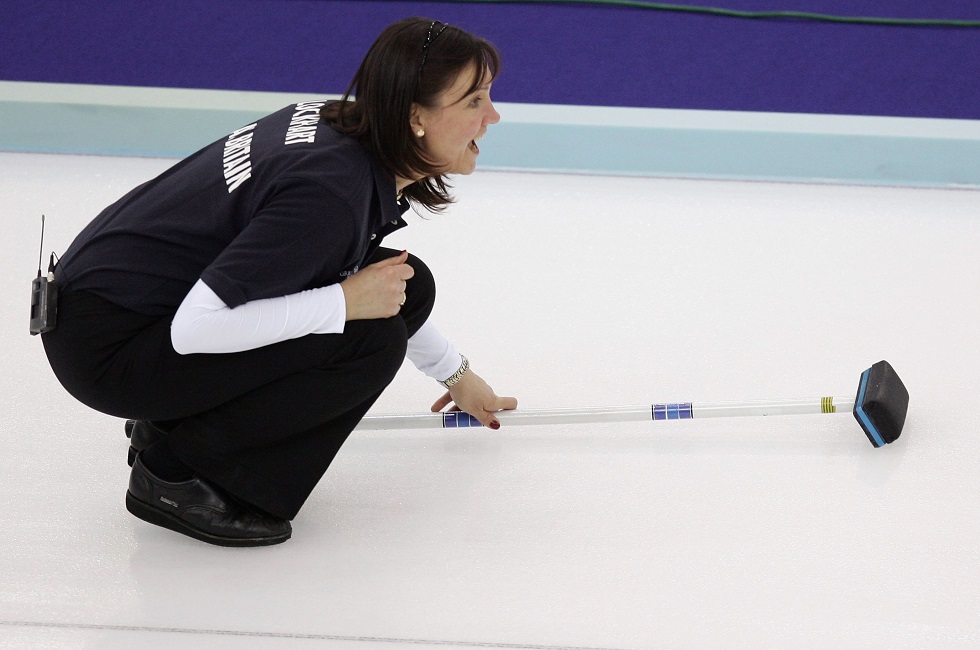 I realised I might have a future in curling in 1996 after making the final of the Scottish Junior Curling Championships for the first time, aged 16. If only I knew then what I know now!
I realised I might have a future in curling in 1996 after making the final of the Scottish Junior Curling Championships for the first time, aged 16. If only I knew then what I know now!
Highlights of a stellar career
Winning the World Championships in 2002 with Jackie Lockhart (left) was the biggest achievement but winning the Scottish Curling Championships for the first time that same year was a significant career highlight too.
I had been runner-up in three Scottish Junior Championships and in the previous year’s Scottish Women’s Championship and was beginning to wonder if I would forever be the bridesmaid.
I have to admit I hadn’t really thought about competing at the World Championships and had never dreamed of winning the World Championships, but after watching Rhona and the girls win the Olympics it gave me the belief that it was possible.
I was fairly young and didn’t have any international experience so I wasn’t really aware of anyone’s reputation on ice – everyone was just another curler and it was just a case of taking one game at a time. It was probably more difficult to be in Jackie's shoes that week!
It was an incredible week and I have so many great memories of that championship. We had a brilliant support team around us and great support from the travelling fans, friends and family in the stands.
Getting involved in coaching
I completed my initial coaching qualifications before I went to university. I was still competing at a junior level but was very much aware of the number of people who volunteered their time and expertise to help me with my curling.
At the earliest opportunity I wanted to give something back to the sport I loved and I still feel very strongly about this.
After graduation I got my first job in sport as the Ayrshire Curling Development Officer and I coached the local Regional Performance Squad, which led to working with a junior team and I had my first coaching success at the Scottish Junior Championships in 2004.
I worked with the same skip and various line-ups for a number of years and was delighted to be a small part of the team that won the World Junior Curling Championship in 2007.
How I got here
Wheelchair curling was a relatively unknown sport in the early 2000s but a group of volunteer enthusiasts were working tirelessly to introduce the sport in Scotland and with the help of Scottish Disability Sport and the Royal Caledonian Curling Club the Scottish Wheelchair Curling Association (SWCA) was set up.
At the time I was still working as a development officer for the RCCC and I was volunteered as their representative to attend SWCA meetings. Through this I started coaching the SWCA Development Squad, which in turn led to working with the Paralympic head coach to ensure that there was an integrated pathway.
During the Vancouver cycle I became involved with the Paralympic squad and worked as assistant coach/team manager in Vancouver 2010, and so it began...
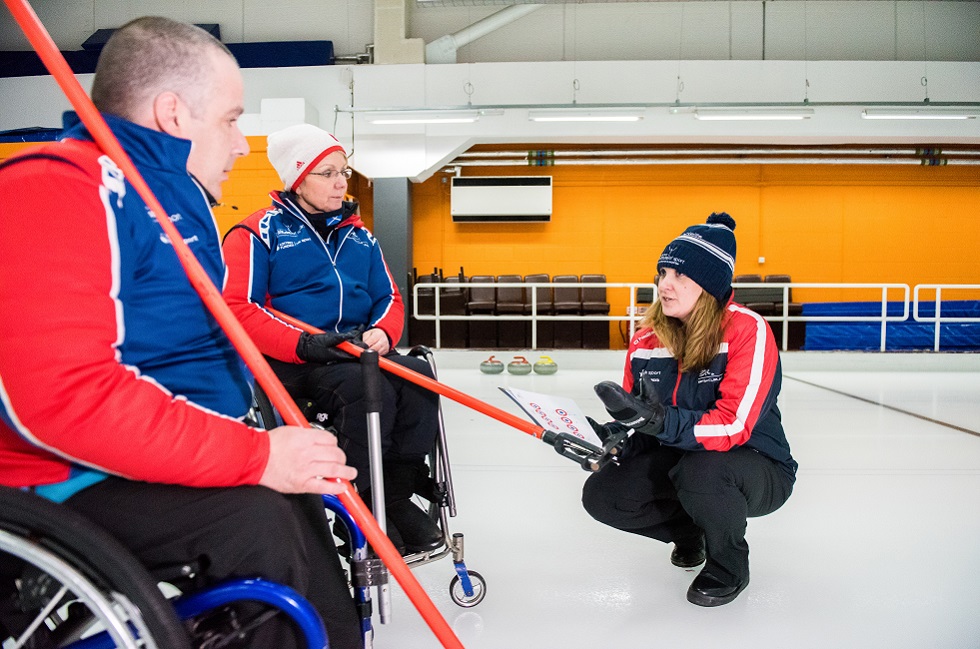
On developing as a coach
I was incredibly lucky when I was competing to have worked with some brilliant coaches, and much of what I do now has been learned from them.
I was delighted to be selected for the new sportscotland Performance Coach Development programme and I am looking forward to working with and learning from everyone involved with this programme. It’s a fantastic opportunity and great that sportscotland recognize the role that coaches play in helping athletes achieve success.
In addition I have found the UK Sport and sportscotland institute of sport high performance conferences very useful.
I am very lucky to be part of an integrated team and to be based at the sportscotland institute of sport, so I have access to expertise on my doorstep.
Looking ahead to PyeongChang
A year out from the Games we are now fine-tuning our preparations. At the present time I don’t envisage any wholesale changes between now and 2018.
We made some big changes to the squad structure in March 2016 after failing to qualify for the World Wheelchair Curling Championship that year, and completed a project working on team dynamics and motivation in competition. We will maintain that work to ensure we remain a robust team through to 2018 and beyond.
Our first stepping stone this year will be the World Wheelchair Championships which will be hosted at the 2018 Paralympic venue and we will be aiming for a strong podium finish at this event, which will be key to discussions regarding potentially securing future funding from UK Sport.
A learning curve
I am much more aware of access and facilities for people with disabilities whenever I am travelling or visiting venues. It is interesting what classifies as disabled access or accessible facilities.
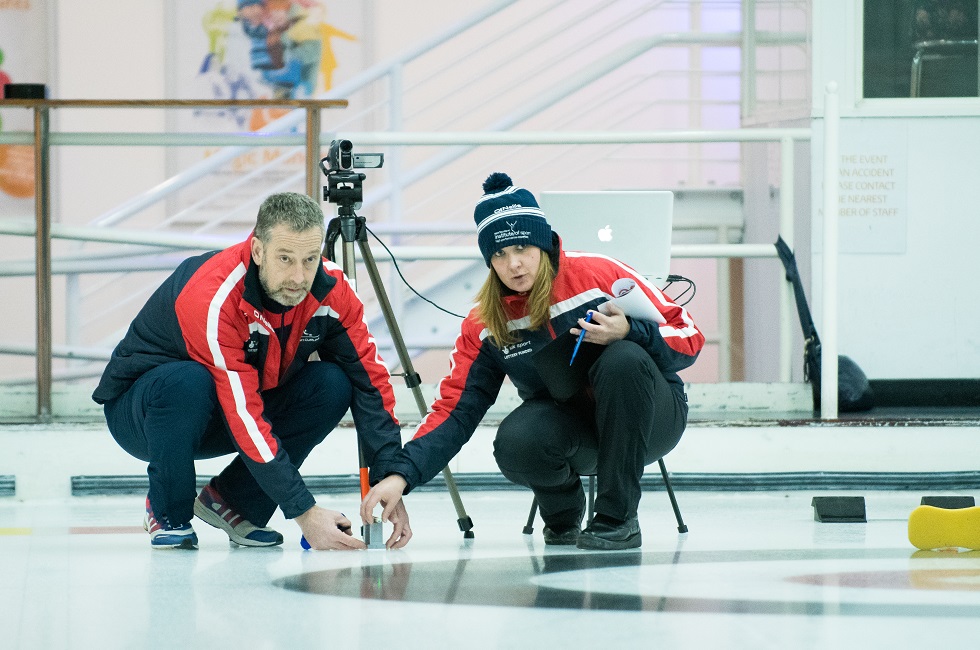
This has definitely heightened my awareness of issues that I wouldn’t have previously considered, such as the width of doors, the gradient of ramps, whether there are disabled toilets – even the distance from a car park to a venue.
These are considerations that are not usually on your radar and you take ease of access for granted when really we should make all facilities as accessible and as inclusive as possible.
I am also much more mindful of people’s athletic age rather than their actual age. Most of our Paralympic curlers have not come from an athletic or high-performance background so it has been a learning curve for all involved.
It has been hugely rewarding working with this group. The London Paralympics in 2012 made significant headway in getting more coverage for disability sports but we can still make more progress and take this to another level.
Find out more
Learn how the sportscotland institute of sport is playing its part in preparations for three major Games in 2018.

